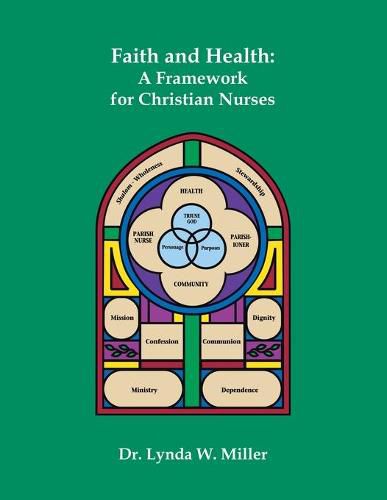Readings Newsletter
Become a Readings Member to make your shopping experience even easier.
Sign in or sign up for free!
You’re not far away from qualifying for FREE standard shipping within Australia
You’ve qualified for FREE standard shipping within Australia
The cart is loading…






This title is printed to order. This book may have been self-published. If so, we cannot guarantee the quality of the content. In the main most books will have gone through the editing process however some may not. We therefore suggest that you be aware of this before ordering this book. If in doubt check either the author or publisher’s details as we are unable to accept any returns unless they are faulty. Please contact us if you have any questions.
This book is a response to a need. Christian nurses, in a wide range of settings, perform their work based on beliefs drawn from their faith, but until now they’ve had no specifically Christian theoretical foundation to help them. Nurses working in the emerging field of Parish Nursing in particular need a framework that helps them explicitly link the tenets of faith and concepts of health in their practice, education, and research. Nurses of other faiths may also find the framework useful in seeing a way to relate their own beliefs and values to their nursing. In the book’s Introduction the author tells why she devoted her doctoral research to theory development and how she went about doing that. The body of the book describes her nursing conceptual framework in depth, yet in an informal reader friendly style. The concluding chapter answers the question Now what? and helps readers make practical applications in their everyday lives. The four major components of the Faith and Health Framework are presented in detail: Person/Parishioner, Health/Shalom-Wholeness, Nurse/Parish Nurse, and Community/Parish, with the integrating component The Triune God. Described under each component are two organizing concepts, which in turn contain other key concepts, such as: mission, ministry, compassion, competence and communion.Various perspectives on the Framework are depicted in several full-color stained glass figures and in an inspirational poem written by the author. There are extensive bibliographic references and quotations from The Holy Bible, throughout, plus Appendices of relevant materials and resources.
$9.00 standard shipping within Australia
FREE standard shipping within Australia for orders over $100.00
Express & International shipping calculated at checkout
This title is printed to order. This book may have been self-published. If so, we cannot guarantee the quality of the content. In the main most books will have gone through the editing process however some may not. We therefore suggest that you be aware of this before ordering this book. If in doubt check either the author or publisher’s details as we are unable to accept any returns unless they are faulty. Please contact us if you have any questions.
This book is a response to a need. Christian nurses, in a wide range of settings, perform their work based on beliefs drawn from their faith, but until now they’ve had no specifically Christian theoretical foundation to help them. Nurses working in the emerging field of Parish Nursing in particular need a framework that helps them explicitly link the tenets of faith and concepts of health in their practice, education, and research. Nurses of other faiths may also find the framework useful in seeing a way to relate their own beliefs and values to their nursing. In the book’s Introduction the author tells why she devoted her doctoral research to theory development and how she went about doing that. The body of the book describes her nursing conceptual framework in depth, yet in an informal reader friendly style. The concluding chapter answers the question Now what? and helps readers make practical applications in their everyday lives. The four major components of the Faith and Health Framework are presented in detail: Person/Parishioner, Health/Shalom-Wholeness, Nurse/Parish Nurse, and Community/Parish, with the integrating component The Triune God. Described under each component are two organizing concepts, which in turn contain other key concepts, such as: mission, ministry, compassion, competence and communion.Various perspectives on the Framework are depicted in several full-color stained glass figures and in an inspirational poem written by the author. There are extensive bibliographic references and quotations from The Holy Bible, throughout, plus Appendices of relevant materials and resources.